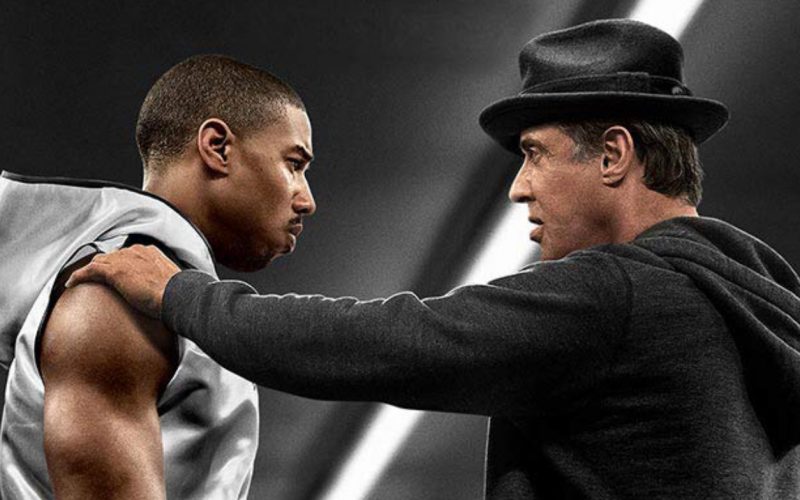Creed (2015).
Creed is perhaps a telling film for me in more ways than one. As a member of the Film ‘89 Team, I will frequently end up in conversations with the other members about when certain film franchises lost their way and, very often, we will find common ground with the fact that certain characters or stories, no matter how close they are to our hearts, have sadly run their course and should be left alone.
I could name many well known examples of “classics” that have become victims of some Hollywood fat cat looking to cash in on an earlier film’s popularity or cult following with some dire sequel or reimagining and I’m sure you can think of numerous examples yourselves. Yet whenever some new take on an iconic film or franchise is rumoured, I tend now to try to be optimistic or at least cautiously so, and now use Creed as a benchmark. Although my initial misgivings are usually proven to be correct, there’s the odd occasion where it may surprise me in the right way as Creed did.
As you may have gathered if you’ve read my other pieces on the Rocky franchise, these films mean a lot to me and having gone out (on what was until now the final movie with Rocky Balboa) on a high, I had no desire to see another movie come out and seemingly spoil the legacy that I hold so dearly.
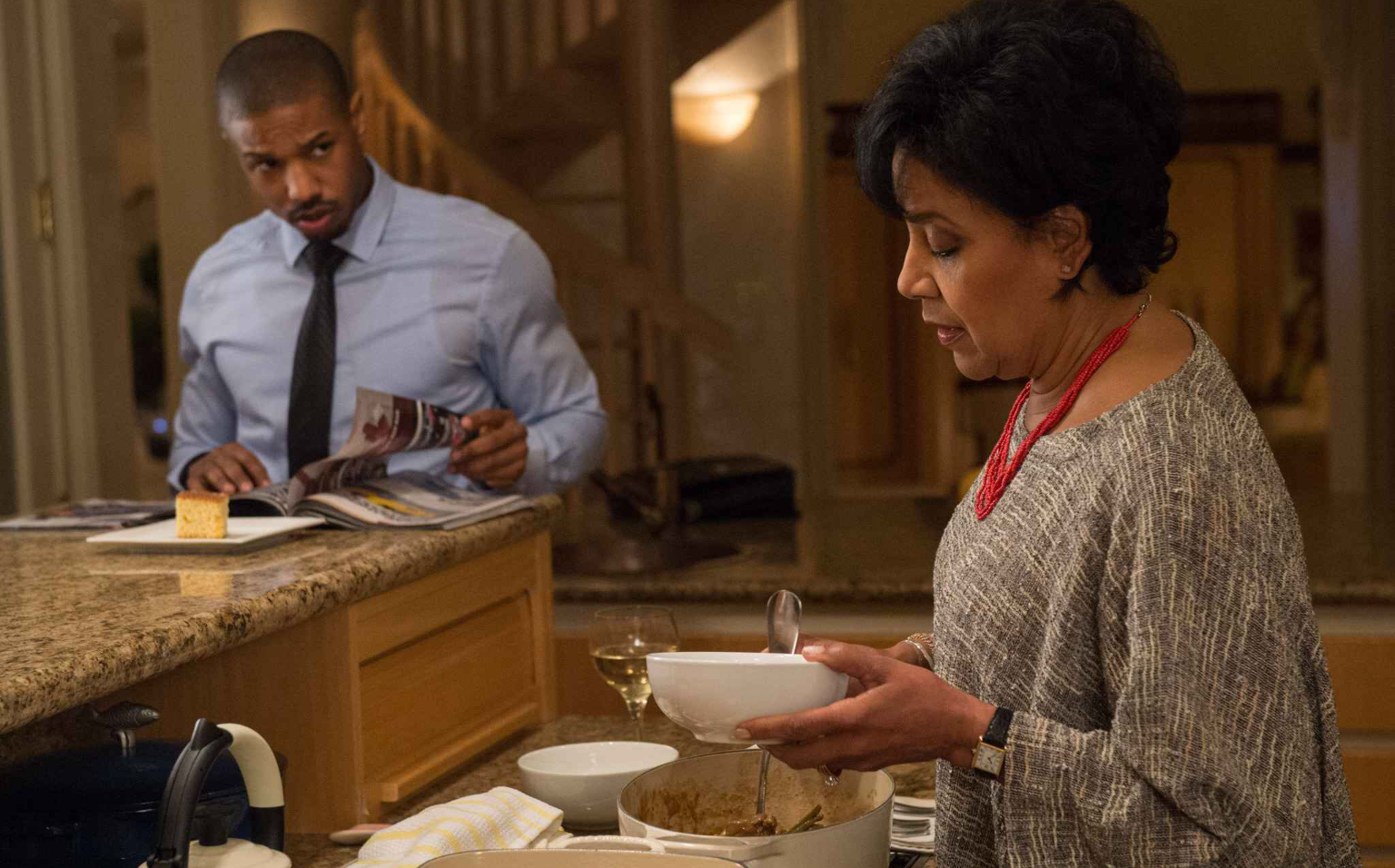
With nine years passing since the sixth and last Rocky film released in 2006, the franchise had brought a satisfying conclusion to the fighter’s life story. It did seem (to me at least) that there was no further story to be told and when I initially read about the proposed spin-off/sequel Creed, said to feature an older Balboa training an up and coming fighter in the form of Apollo Creed’s son was being mooted, I feared the worst! My mind immediately jumped to the conclusion that we’d already seen this story before, and unfortunately, that it had resulted in the weakest film of the franchise in Rocky V, which also saw Balboa take on the managing/training duties for Tommy Morrison’s character, Tommy “The Machine” Gunn. This story had left many fans dissatisfied (myself included), with many struggling to find any real connection to the new boxing protégé’s character and had produced what was widely accepted as the only truly poor film in the series.
The late Tommy Morrison performed admirably enough (for a professional boxer) in his film debut. Sadly his character wasn’t really given much to do other than act humble when he first meets his idol Rocky and then perform like a spoilt, angry brat when he doesn’t get his own way, when Balboa struggles to restrain his ambitions of going into a title fight too soon. Any chance Gunn ever had of getting a spin-off movie was smashed on the Philly sidewalks as Balboa exacted his swift fistical justice upon Gunn for his betrayal and even more shockingly, punching out Paulie (not cool). Gunn was there to serve as a driving factor the next chapter of Balboa’s story, rather than to develop into a character that could go on to have any sort of longer lasting story of his own. Tommy Gunn is simply a character put there to allow Rocky to have one last hurrah in a street fight, as many, Stallone included, thought that Rocky was perhaps a little too long in the tooth to find himself back in a boxing ring fighting a new challenger, which in itself seems a little kooky now after the success of the sixth film, Rocky Balboa, that was released some sixteen years later.
Of course, the introduction of a new and fresh set of eyes can sometimes bring a refreshingly different take on an old idea. Directed by Ryan Coogler, who had recently scored critical acclaim with his previous film, Fruitville Station (2013) and co-written with his Fruitville writing partner, Aaron Covington, Creed somehow pulls off the almost impossible task of carrying on the story of a familiar and well-loved character, whilst also introducing a new and (hopefully with time) equally interesting character. Instead of wanting to punch his way up from the gutter as Rocky had to, Adonis Creed comes from a privileged background but still wants to fight to prove that he’s worthy of carrying on the legacy of the long-departed father he never got to meet.
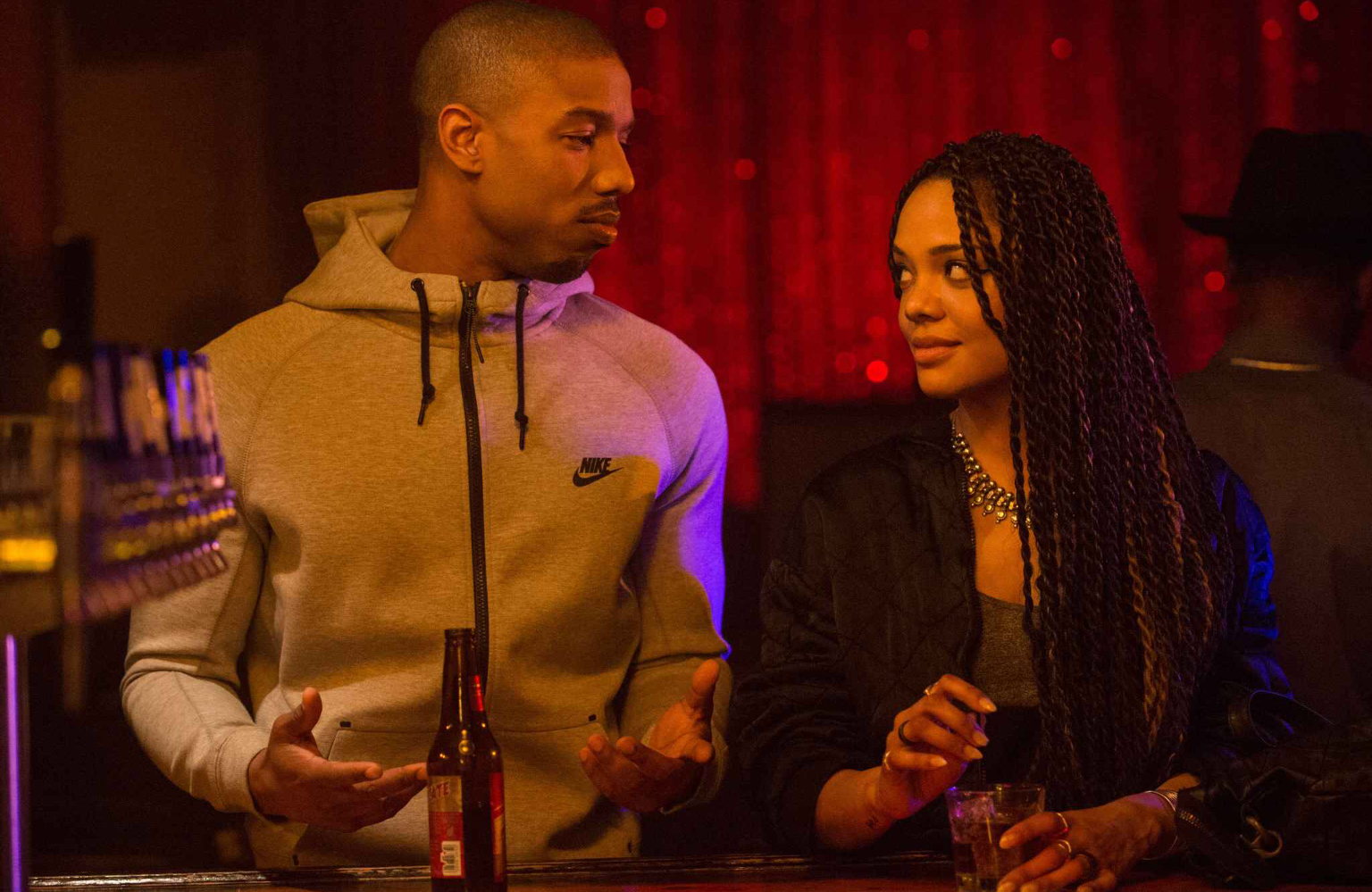
What’s presented to us this time around is a very different narrative structure in comparison to some of the other Rocky films, but the new writers tread wisely enough to reference the previous Rocky films when they need to. Mostly notably, through its familiarity with the more restrained tone of the sixth film, whilst actually using the aftermaths of the events of the fourth film, which is pretty much the most prevalent example of a Rocky film moving completely towards the fantastical, as its catalyst for the main plot structure of Creed.
What we find here are two separate stories intertwined by their respective grief over the death of Apollo Creed at the hands of Rocky IV’s Ivan Drago. Adonis Creed, who we quickly learn is the illegitimate son of the deceased former champion, is first shown as an orphaned child in the care of social services, who goes on to be adopted by Creed’s widow after his biological mother’s death. The youth is naturally angry that he lost a father that he never had the chance to know, as well as his mother, and will eventually go on to become a man looking for meaning in his life through the sport of Boxing. Through his seeking out of Balboa for assistance, we’re introduced to a Rocky that is still silently racked with the guilt of letting the Drago match continue into that fateful second round. You get the impression that Rocky has buried this fateful chapter deep within himself, and his first encounters with the young Creed open up a pandora’s box of until now, repressed emotions. Two men drawn together, one by choice and the other initially by a sense of duty, as if to try to make amends for what he believes he’s responsible for, the death of his good friend and former rival and for depriving Adonis of a father.
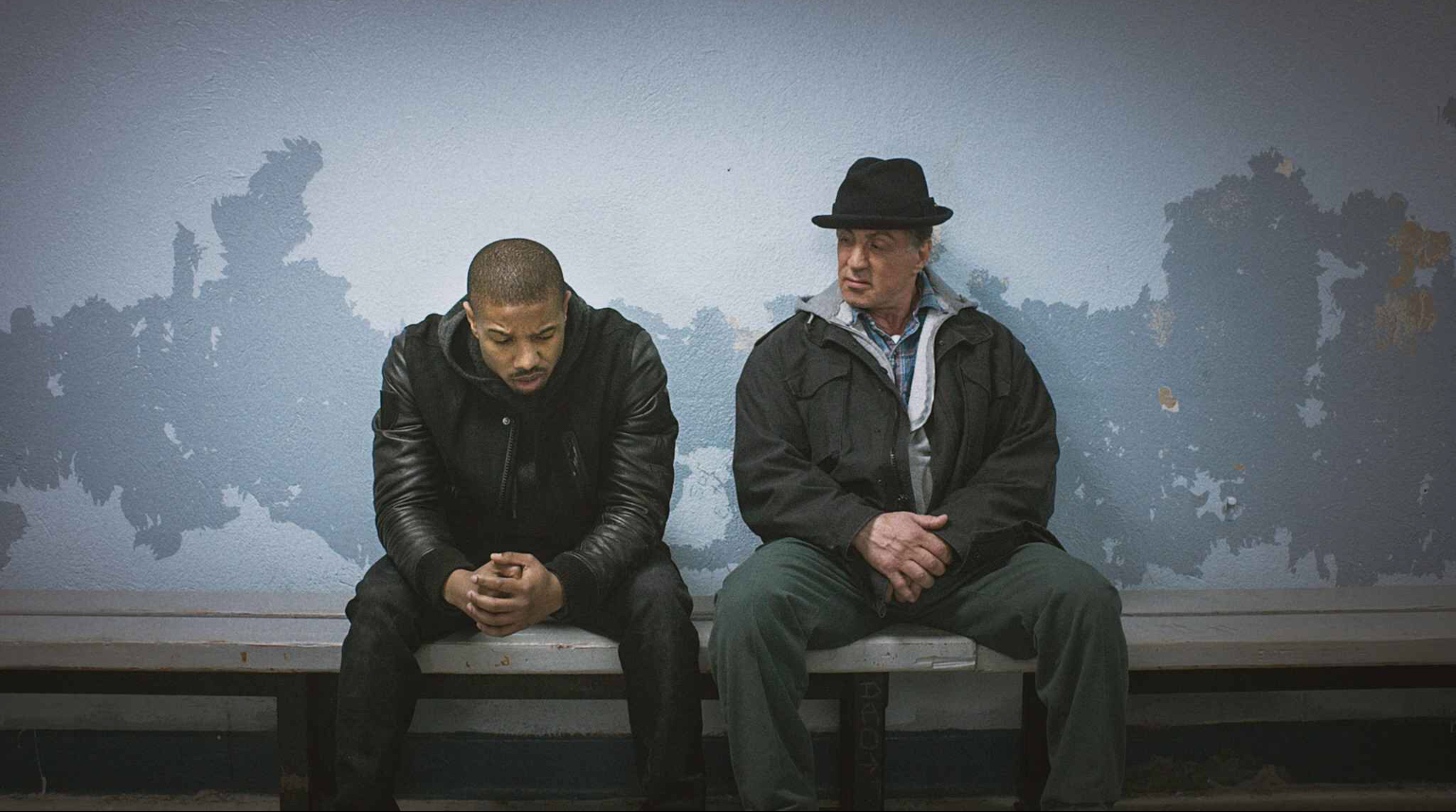
Adonis Creed is played admirably by the star of Coogler’s previous movie, Michael B. Jordan. A young man who has seemingly benefited from a second chance early on his life with his adoptive mother, Mary Anne Creed (Phylicia Rashad), who most people will instantly find some common ground with. As much as the widow of Apollo is naturally peeved to find out that her late husband had cheated on her with another woman, she’s strong enough to forgive his indiscretions when she finds out that his son is now in social care having been orphaned at a very young age. Taking Adonis into her home, she’s able to provide him with the love and support that he needs, and of course with Apollo’s amassed fortune from his many Heavyweight Title victories. She’s able to give him a life that he could previously only have dreamt of. But for all the riches and advantages such as a good education and subsequently a high paying promotion in his employment, this isn’t enough for him. He feels that he needs to prove that he’s worthy of his fathers name and fighting spirit.
We see that Creed has now taken to traveling south of the border to take part in Mexican “smoker” matches, fighting opponents who are unaware of the famous lineage that stands in the opposing corner, as Donnie (Adonis) conceals his true identity by fighting under the surname of his late mother. On the surface Donnie has a bright future outside of the ring, but finds himself needing to fight if only to prove to himself that he’s worthy of his father’s legacy and after quitting his affluent homelife and job, he sets off to Philadelphia to find the one man that he knows can help him achieve this.
Unfortunately the Balboa he finds hasn’t lived happily ever after. His son has now moved to Canada with his new family, his brother-in-law Paulie has passed away and no mention is made of the “adopted family” of Little Marie or her son Steps from the sixth film. He’s once again alone, perhaps even more so now than when we found him in Rocky Balboa. Add to this that he’s several years older too boot, and the aches and pains of his many battles are now far more prevalent and we as we soon find out, conceal a far more serious ailment.
When the young Creed first approaches him for help, Rocky is steadfast in his refusal to provide his services. Not only does the former champ fear being involved with another tragedy involving his late friends’ son, he’s also perhaps too afraid to move out of the now familiar protective bubble that he’s cocooned himself in. He has once again fallen into his daily routine of visiting his wife’s grave, which now has a neighbour in the form of Paulie whose grave is next to Adrain’s.
This only serves to fuel the sadness that Balboa feels is surrounding him. It again shows that he is far removed from the present and in fact, chooses to remain trapped in the past and it’s also a massive credit to the new writing team who obviously shared a great deal of appreciation and love for the series, in particular the sixth film, which naturally acts as a mini springboard to this new story.
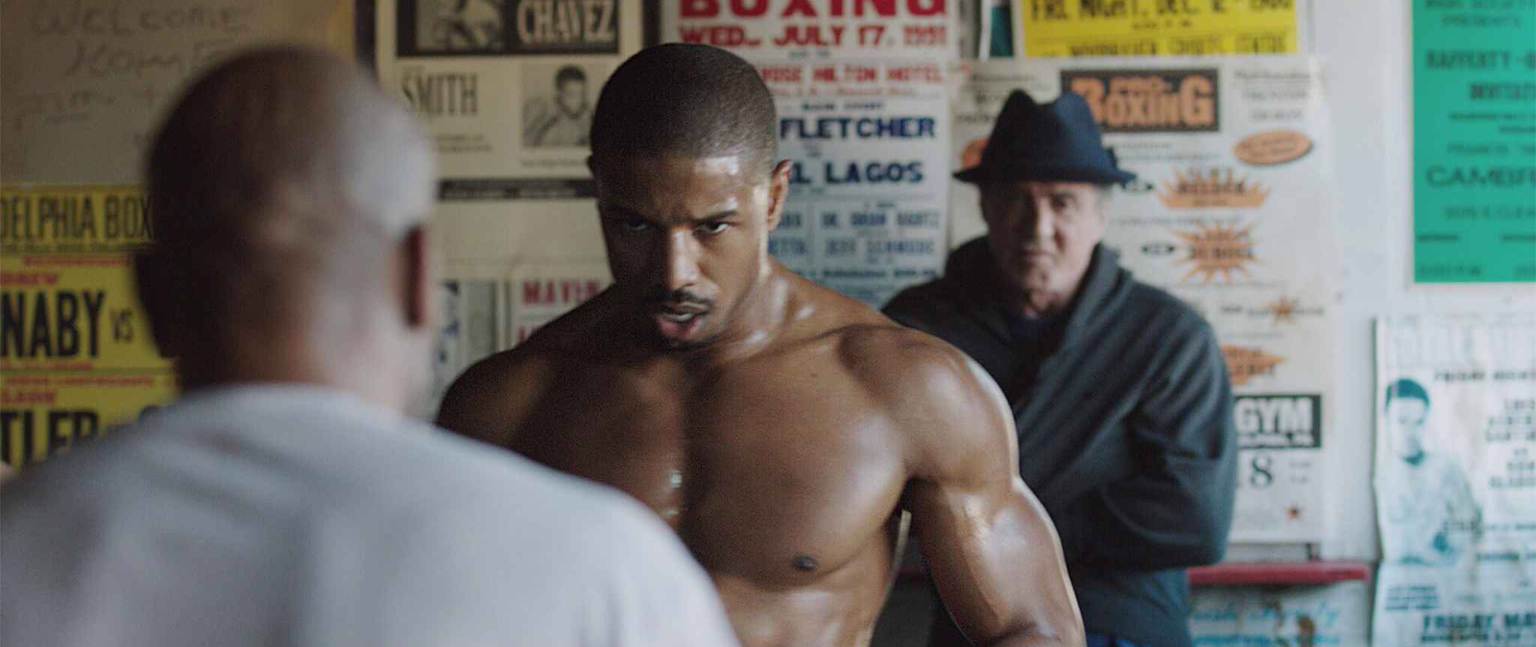
Balboa has suffered so much loss over the years that he tries to remain distant from others. On the surface he’s still open and friendly, but the telling factors here lie in the fact that he’s no longer letting anyone to get close to him. It’s probably for the fear that if he grows close to anyone that he’ll lose them. Simply put he’s a man riding out his remaining years in the hope that he’ll soon be reunited with his lost loved ones. There’s one fight that nobody will ever win and that’s when they find that their own mortality stands in the opposite corner to them and this is now sadly a battle that Balboa is seemingly happy to lose.
The nuances of Balboa’s later life and his coping mechanisms are skilfully employed by Stallone’s stellar performance. Having been nominated way back in 1977 for an Academy Award for Best Actor for the original film, he would again find himself nominated for best supporting actor for his performance in this movie. You can clearly see that for the first time ever, he has not dreamt up a new chapter for his alter-ego, but that he clearly approves of this new vision for his creation and perhaps even benefits a little from being allowed to concentrate solely on his performance rather than wearing the multiple hats of writer, director and lead.
The obvious love for the previous films runs throughout the story providing parallels to various related story aspects, both funny and sad. The fact that Donnie can catch a startled chicken in a matter of seconds is not lost upon Balboa, and when Donnie invites himself to live with Rocky as they begin their first fight camp, catching the old Pug off guard, he only reluctantly agrees only after his young protégé is forced to bargain with him of the merits of the arrangement. Mark this in contrast to how Rocky invited Tommy Gunn into his family’s home within minutes of meeting him in Rocky V. Rocky would go on to even put Tommy Gunn ahead of his own son, by going as far as wanting to give him the necklace, adorned with Rocky Marciano’s cufflink that he’d been given by his deceased mentor Micky, and yet with Donnie, he’s much more guarded and tries to keep him at arm’s length in the early stages of their friendship. Balboa obviously finds it too hard to be involved with another Creed in accordance for the guilt that he still carries around regarding Apollo’s death, but there are also the traces of the former betrayal that he felt when Tommy cast him aside in exchange for a title shot. Does Rocky really want to be the victim of another betrayal? It’s if the character now feels that through the many blows that life has dealt him outside of the ring, that everything he allows himself to love will eventually be taken away from him, either through death or by the disloyalty of those he trusted.
Rocky tells Donnie that he no longer has any involvement with boxing. Mick’s Gym is now run under the auspice of a new trainer, Pete Sporino (Ritchie Coster), who now trains the latest batch of Philly contenders including his son Leo ‘The Lion’ Sporino (played by real life middleweight contender Gabriel Rosado) at the hallowed shrine of Rocky’s past career. It’s strange that Balboa would remove himself so far from boxing. His last fight against Dixon surely provided a way out for him from under the dark clouds of anger, grief and loneliness but now he simply finds no comfort from the smell of old leather gloves, blood, sweat and tears. The gym has been completely renovated since we last saw it, but still proudly displays the image of its biggest success upon its freshly painted walls. It’s as if Balboa doesn’t want to remove himself from the sadness, as if he’s actually resisting the urge to embrace that life again, as if the memories that this building hold are too much of a temptation for him to let out his emotions for days now far gone. Donnie provides the fortitude needed for Balboa to step out into the present once again, a reason to allow himself to engage with the unfamiliar and to try to start living again, and quickly realising that the young Creed needs his guidance.
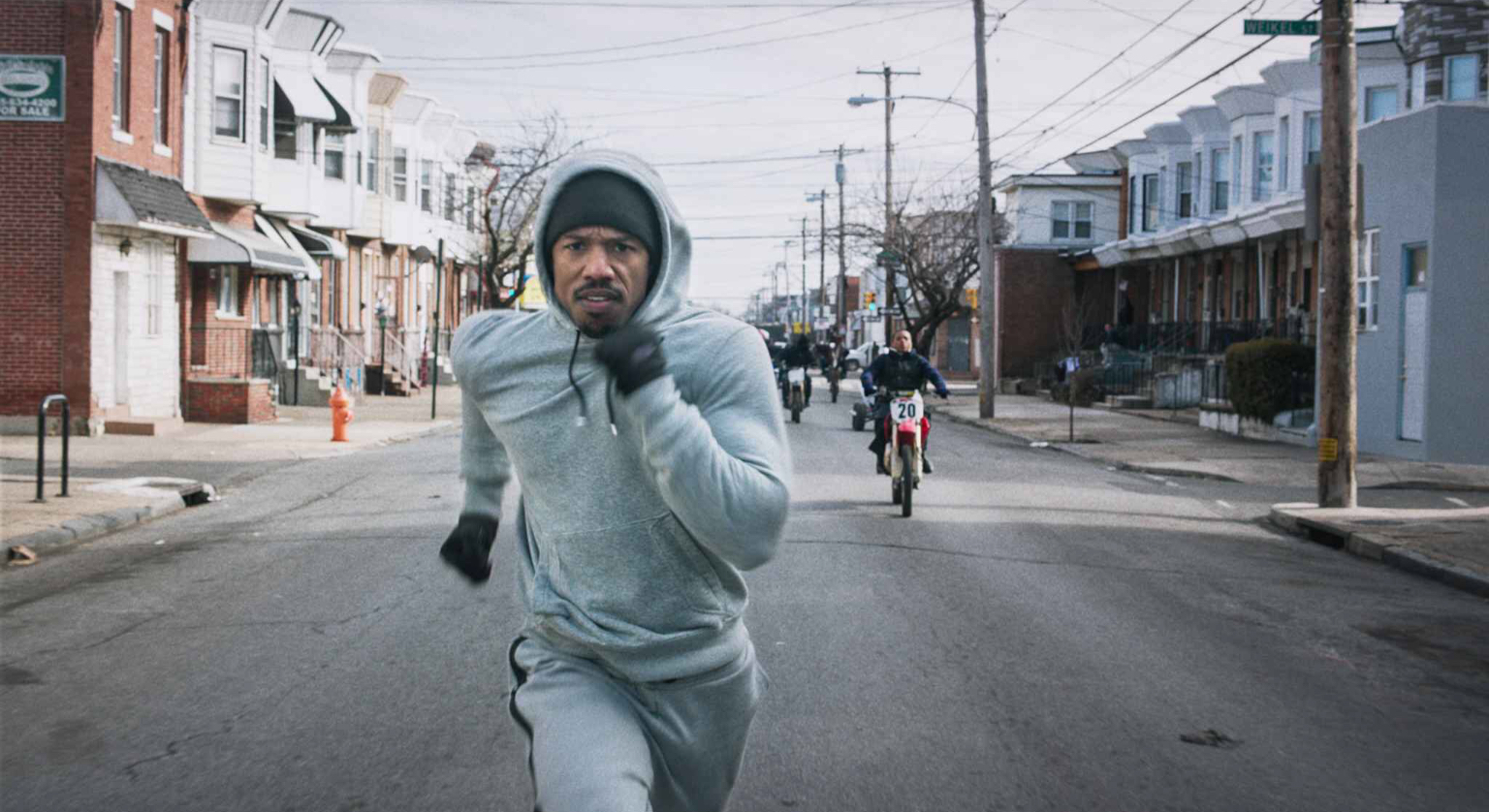
Balboa is naturally a little too protective of his ward but eventually accepts a match-up against Leo ‘The Lion’ Sporino and then chooses to take his ward to a new boxing gym, to not only remove the aspect of his opponent being privy to his training progress, but also in an attempt to broaden his own horizons by leaving Mick’s Gym behind. For the first time we actually get to see Rocky embrace the fact that his life can now go on. This in turn gains media attention and it’s not long before the world finds out that Apollo Creed has an heir when Donnie wins the match with the famous former trainer in his corner which leads to an unexpected World Title fight offer against Britain’s Ricky Conlon after the champ strikes his original opponent Danny “Stuntman” Wheeler at a press conference, resulting in a broken jaw for the challenger.
Of course an essential part of the original film was the love story and this new take on the pugilistic saga has a romance of its own. Tessa Thompson’s Bianca is, on the surface, a million miles from Talia Shire’s Adrian. A strong, independent female who’s not afraid to speak her mind. An aspiring musician, struggling to make her name in the business before a deteriorating ear ailment takes away her hearing. None the less, she provides the same sense of love, support and a much needed stability for Donnie that Adrian did for Rocky all those years ago, helping him through his insecurities to take on the lineage of his father’s legacy. Rocky is quick to encourage Donnie to realise how lucky he is to have her in his life. No man is an Island and whilst Rocky has made himself one over the last few years, this new adoptive family will also help him more than he ever knew when the former champion finds out that he has non-Hodgkin’s lymphoma.
A man now devoid of the need to fight for anything, when all that he previously held close to his heart has now left him. Rocky initially turns down any form of chemotherapy. He’s made the decision to allow the disease to take him away from the pain he feels inside. The loss of his family has once again left him feeling alone, isolated and depressed. It’s almost as heart breaking to see Balboa keep Adonis initially at arm’s length when he pleads with Balboa to get the treatment as it to see such a beloved character go through this ordeal. As with so many a kind-hearted soul, it’s often the case that when it comes to helping themselves, they face an uphill battle in the acceptance that they are worth it. For Rocky, it’s as if he’s afraid to let himself become too close to Creed, as he’s fearful of causing the same pain that he’s faced in the past from losing somebody, also in his knowledge that Donnie too carries the grief for the father that he never knew.
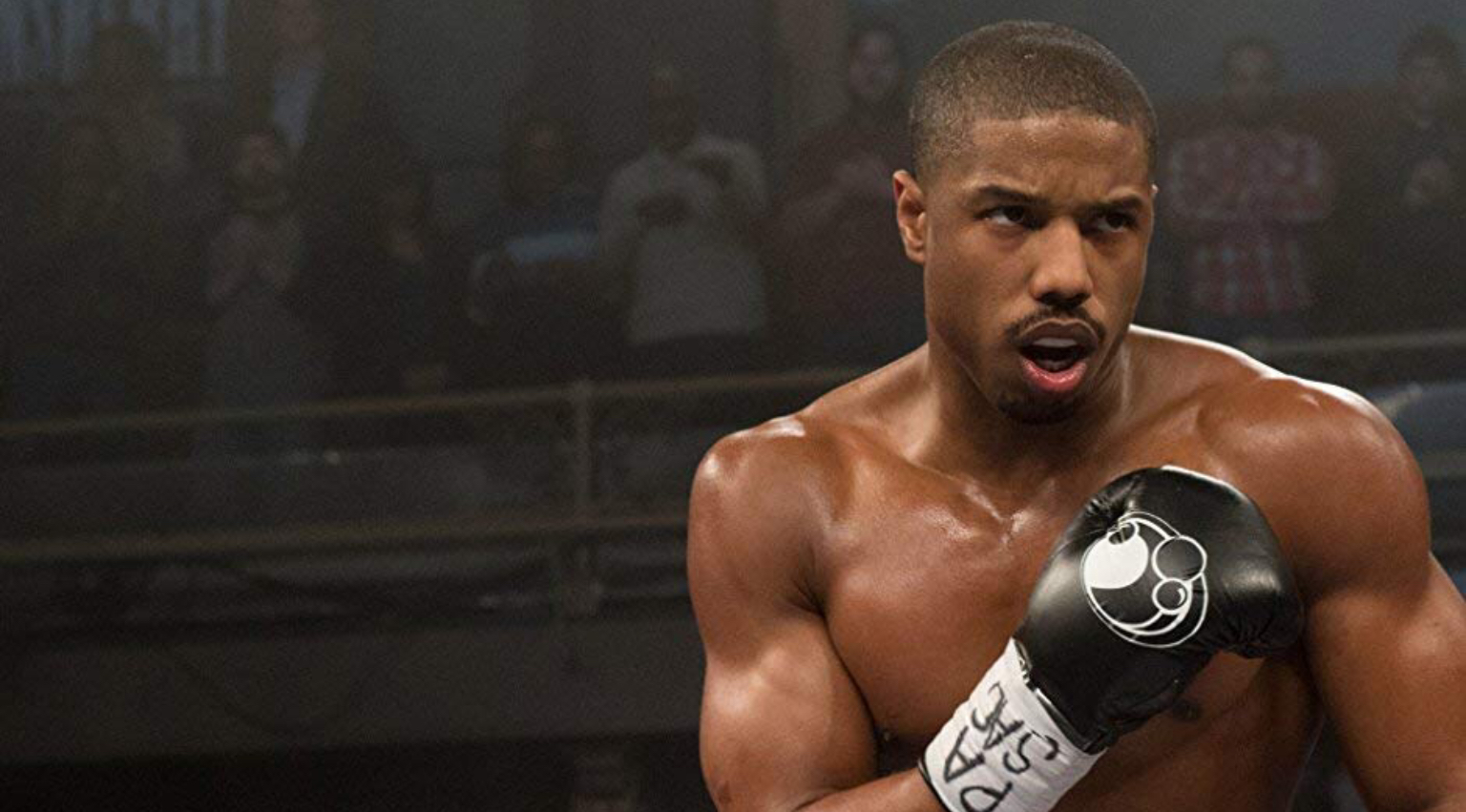
This is not the heart of the Balboa that we have all become accustomed to. Life has simply hit him too hard too many times by now, causing him to become a man that we are no longer familiar with. Angry at what life has given to him and then taken away. For Balboa the thought of death is almost a reprieve form the inner torment he’s been suffering from for the last few years. Like many who outlive their loved ones, he wishes to be taken away. He has little faith in the options that the medical experts can offer him, explaining the pain and suffering that he saw his late wife go through prior to her death is something he’d sooner avoid. The man that once gave rousing speeches to others about how they needed to keep moving forward in life has now drawn to a complete halt himself. In the later stages of his life, the former champ has come to understand that the battle of one’s continued existence is a fight that not even he can win forever and he has very little strength or motivation left. The love and support of the young couple of Donnie and Bianca helps him return to who he once was. Although he initially tries to rebut their attempts, eventually them just being there for him ignites the fire once again in the champ’s heart for what will be his toughest battle. Donnie inspires him to take the fight of his ongoing treatment head on. He will train to win in an unexpected World Title opportunity against Ricky Conlon if Rocky will find the fight that Donnie knows he still has left inside him to battle against his illness.
In typical form, the old war horse adopts the mentality of his former trainer Micky and insists that the title fight is the most important thing, training Donnie whilst undergoing chemotherapy. For a lifelong Rocky fan, it’s a wrench to see Balboa go through this and a stark reminder that eventually, all we can do is savour the time we’re given on this earth. For all that we do or don’t achieve in life, it will mean nothing when fate makes its choice for us, but we should never give up out without a fight. In true Rocky tradition we’re again given a training montage with Donnie getting his own take on a theme tune akin to Bill Conti’s famous “Gonna Fly Now” in the form of “You’re a Creed” which was composed by Ludwig Goransson and successfully interpolated Conti’s famous track with vocals by Trilha Sonara.
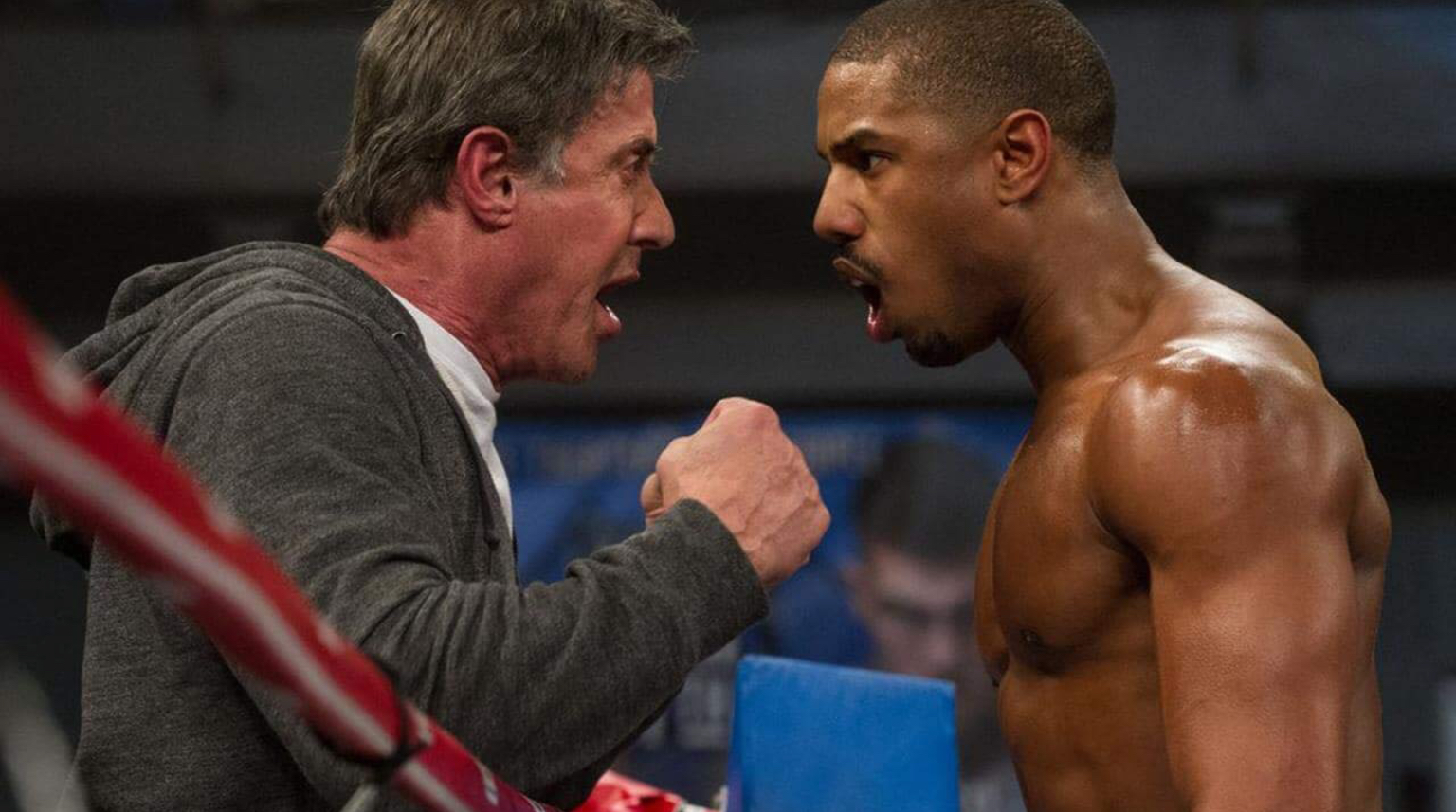
Moving on to the fight itself, we’re treated to the only bout in the franchise to ever take place on British soil and apart from Rocky IV, the only non-American arena in the form of Everton Football Club’s Goodison Park. Believe it or not, Stallone is a soccer fan and even stated in the past that he regrets not trying to buy the club when he had the opportunity years ago. The actor supports the “Blues” thanks to his friendship with club director Robert Earl and first visited Goodison Park in 2007. With his Everton connections it’s hard to imagine that he didn’t have some influence on Coogler’s casting of life-long Everton fan and, at the time, European Cruiserweight champ Tony Bellew as the brash World Champion Ricky Conlon.
Coogler respectfully repeats the formula of the sixth film of casting real-life boxing personalities to play themselves, such as Ring Announcer, Michael Buffer, with his instantly recognisable “Let’s get ready to Rumble” battle declaration, as well as Jacob “Stitch” Duran taking on cut man duties for Creed. HBO boxing commentators Max Kellerman and Jim Lampley are also back behind the microphone to call the fight which, whilst not quite as authentically shot as the sixth film’s bout, still ranks highly in comparison to some of the earlier Rocky films. The conclusion to the bout is heart-breaking, heart-warming and ultimately satisfying as Creed hits the canvas to then see snapshots of the people who matter to him, only to then spring back up to his feet upon reaching the image of his late father. He now accepts that he is not a mistake. He truly is a Creed and roars back into battle to ultimately send Conlon into dire straits and onto unsteady legs at the final bell. As with the first and sixth films, the decision of the bout is once again a split decision loss for our new hero, but as we’ve already learnt, the decision pales into insignificance when you’re really fighting for so much more than a World Title belt.
Through much of this retrospective series I have alluded to how much the Rocky films have embraced much boxing folklore in inspiration for its storylines, but in a strange twist, this film seemingly predicted events before they actually occurred. A year after the film’s release, Tony Bellew (Ricky Conlon) would actually find himself boxing in Goodison Park in a world title bout where he won the WBC Cruiserweight Championship of the World with a third-round knockout after being floored himself in the first. How Rocky can you get? His character’s first choice opponent in the film, Andre Ward (Danny Stuntman Wheeler) would find himself laid up for a period of time through injury before coming back to win a world title at light heavyweight. More tellingly, the illegitimate sons of two of Great Britain’s most famous fighters, Chris Eubank and Nigel Benn each made their professional debuts. It appears that as much as the original Rocky films inspired several generations to take up the sport, that this fresh spin on the saga also made its mark.
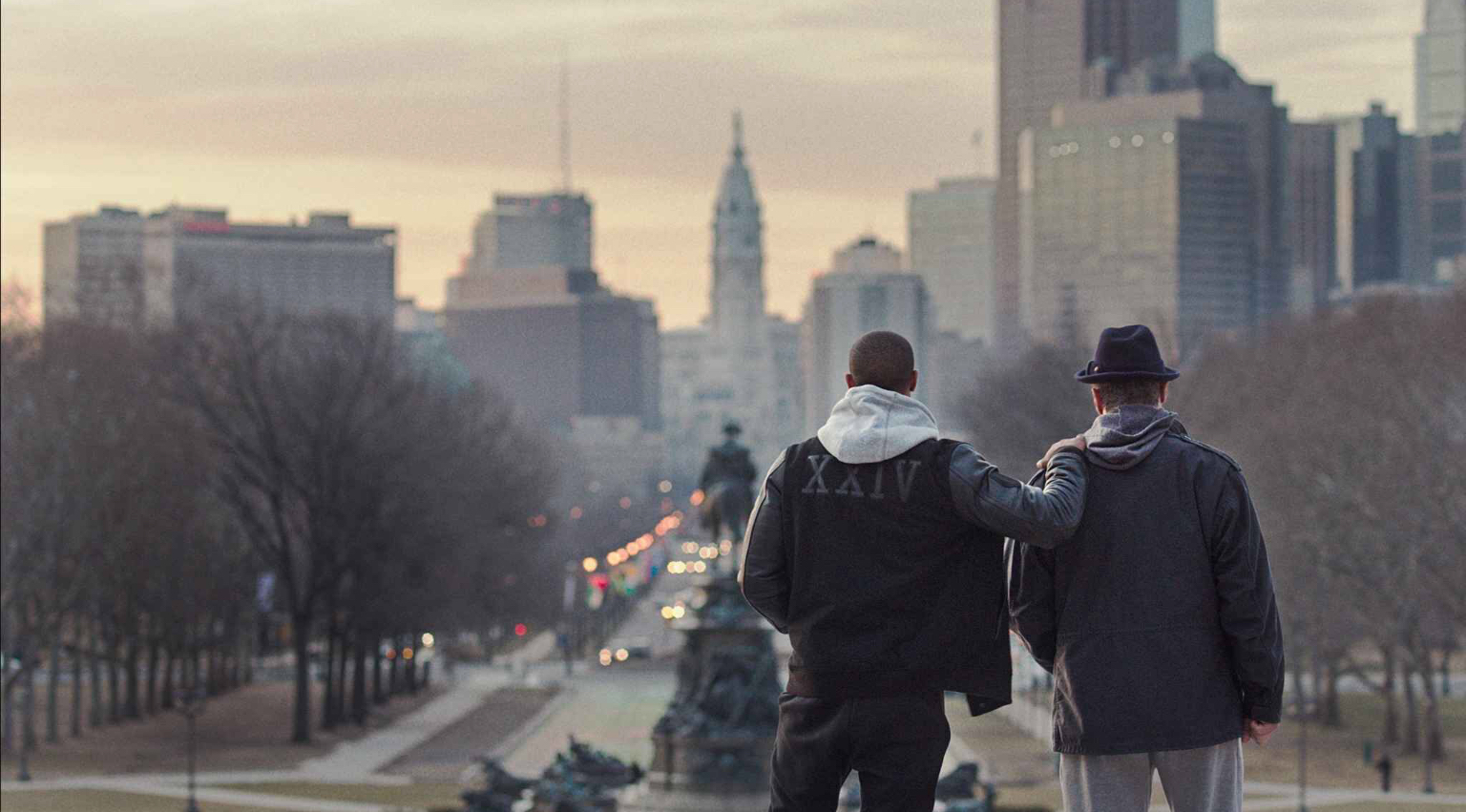
Creed is nothing short of a miracle when one thinks about the wrong path this film could have taken. A rare exception to the cash-cow mentality that many beloved franchises have fallen foul of. Crafted by people who love and respect the legacy of the films that came before it and in the spirit of the original Rocky film, packed with powerful performances, Creed is a film that came from nowhere to deliver a knockout punch that fans were only willing to take on the chin.
Film ‘89 Verdict – 8/10

